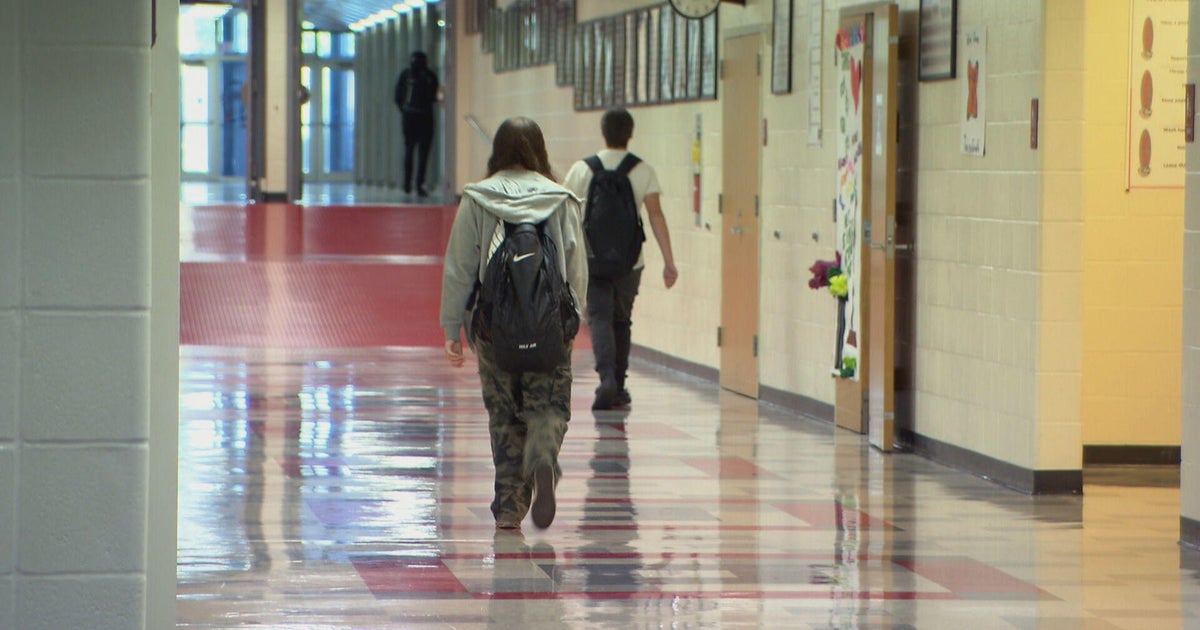Italian gun laws change as leaders push "legitimate defense"
Brescia, Italy -- Italians make some of the most sought after firearms in the world. For decades they supplied the standard issue pistol of the U.S. military. Domestically, however, few Italians have owned guns for self defense. But now, analysts say a growing sense of insecurity -- and some of the country's new leaders -- are bringing a shift in Italy's gun laws and culture, and despite falling crime rates, more Italians are arming themselves for security.
"Gun Valley"
Italy has produced over 1 billion dollars worth of the estimated 2 billion dollars of shotguns imported by the United States over the last decade, according to preliminary data from Small Arms Analytics. The epicenter of the Italian firearms industry is Brescia, in the country's mountainous north.
Dozens of gunmakers have been based here for hundreds of years, among the most famous of which is Perazzi, whose shotguns are used by Olympians and kings.
In the Perazzi factory, dozens of artisans stand at their stations, meticulously carving, engraving and hammering fine details.
"No machine can make what these guys do," the company's owner, Mauro Perazzi, told CBS News. His company's shotguns can sell for $80,000 or more, which means they aren't being purchased by the average Italian.
They are, however, one of a number of firearms that have been photographed in the hands of Italy's right wing Deputy Prime Minister Matteo Salvini.
Shifting sands
"It sends a message," gun control advocate Giorgio Beretta, no relation to the manufacturer, told CBS News, of seeing Salvini pictured with guns. "(It says) the good guys have guns."
Salvini's "League" party came to power as part of a coalition government last year, which has already passed legislation increasing the number of guns Italians are able to own and the size of permitted magazines.
The government is currently supporting a "legitimate defense" bill that would, among other things, decrease penalties for Italians who kill someone perceived to be a threat in their own home.
Critics have accused Salvini of stoking Italians' fears of crime, and presenting himself as a strongman solution.
"(Italians) feel insecure because of the economic crisis, because of unemployment, because also of foreign people who have been coming to Italy," Beretta told CBS News.
Since 2014, the number of sporting gun licenses – a main type people get to buy guns for self-defense -- issued in Italy has increased by 50 percent, according to government data published by the Italian newspaper Il Sole 24 and the Italian research institute CENSIS. That does not correspond, however, with the number of Italians registered with sport shooting associations, according to Beretta, who said that more people are acquiring sporting gun licenses just to keep firearms in their homes for security. Other kinds of gun licenses, including those for hunting, have declined.
"This idea has really been coming from the United States – it's a kind of 'individualistic' idea," Beretta said. "'You have to defend yourself and your house,' is an idea which is spreading in Italy, and Salvini is making the most of it."
Legitimate defense
Deputy Interior Minister Nicola Molteni works for Salvini and campaigned alongside him for the legitimate defense bill, which resembles the "stand your ground" laws in some U.S. states.
Critics say the proposed law could be taken as encouragement for more Italians to purchase firearms to keep at home for security -- a notion Molteni rejects.
"Self defense does not necessarily have to be done with arms," he told CBS News. "I can also defend myself with a rolling pin or a kitchen instrument."
Molteni said Italy is facing, "a fresh outbreak in crime, faced with the rise in crimes committed by foreigners -- most of the robberies inside homes are committed by foreigners, by gangs from Eastern Europe."
But the crime rate in Italy has been in steady decline for years. In 2014, at the start of the migrant crisis, approximately 2.7 million crimes were reported in the country, according to government statistics. In 2017, the most recent year for which data is available, that number had dropped to around 2.4 million.
The legitimate defense bill has been approved by the lower house of the Italian parliament, and is scheduled for a vote in the Senate at the end of March.




